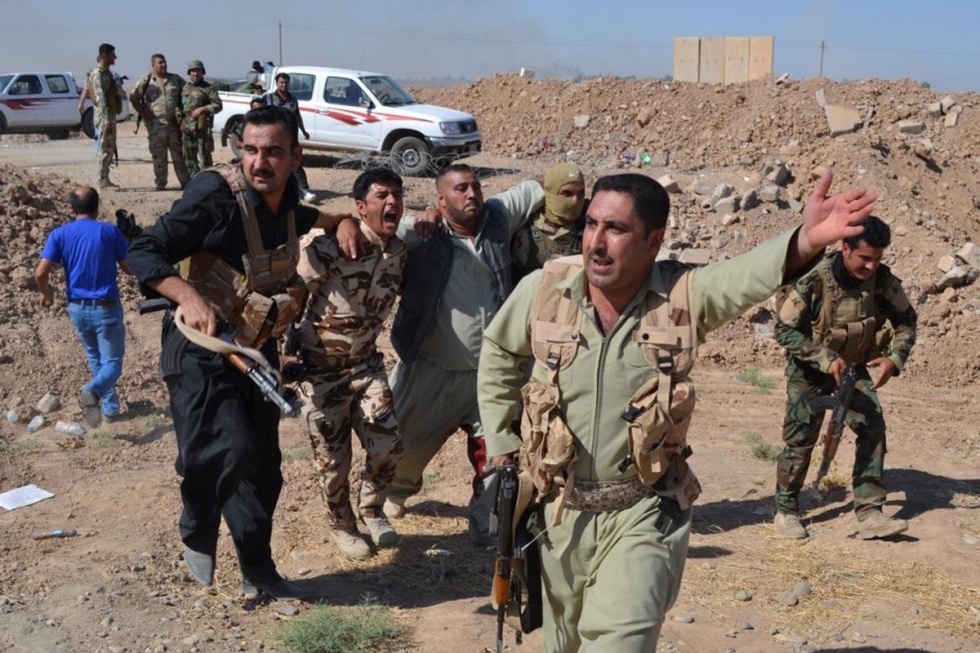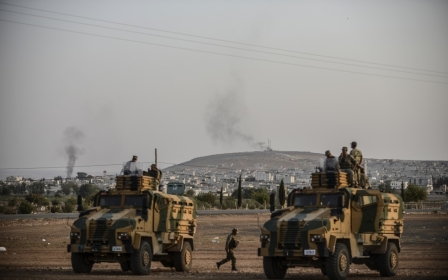US envoy warns retaking Mosul will take more than a year

Retaking Iraq’s second city Mosul will likely take more than a year, US President Barack Obama's envoy for the anti-Islamic State coalition warned on Friday.
Retired General John Allen told reporters in Baghdad not to expect any sweeping victory against IS, despite the growing western military presence in the region.
"I would see that Mosul will probably go as an operation within a year... The operation will kick off within a year," Allen said.
Iraq’s second city first fell to militants on 10 June and has since become the Islamic State heartland in Iraq. While Iraqi Kurdish Peshmerga forces, backed by US war planes, managed to push back IS north of Mosul and retake the strategically key Mosul dam in August their advance quickly stalled, leaving IS in full control of the city.
"It is a battle that is going to obviously demand as much planning and preparation as it possibly can," said Allen. Mosul "was the place where [IS leader] Abu Bakr al-Baghdadi exposed himself, the place where the difficulties of the ISF (Iraqi security forces) really began to cascade."
The statement came shortly before Islamic State militants shot down an Iraqi army helicopter over Baiji some 250 kilometers north of Baghdad. The town, which is home to Iraq’s largest oil refinery that fell to IS in late June. The pilot and co-pilot were both killed in the incident, which showed that IS was not defenceless against aerial assaults.
During his visit, Allen also met with Prime Minister Haidar al-Abadi on Thursday and a range of Iraqi religious figures. He has gone to great lengths to stress that the US would not be sending combat troops back into Iraq and would only be providing logistical and aerial support to Iraqi troops fighting IS on the ground.
The US invaded Iraq in 2003 to topple former President Saddam Hussein and only pulled out in 2011, leaving many Iraqis worried that the US could be looking to reinsert itself.
Progress at last?
After a string of defeats at the hands of Islamic State militants, which saw up to 300 Iraqi soldiers killed by IS at the Sejar military base east of IS-held Fallujah, Iraqi army and Peshmerga forces appear to have made strides in recent days.
On Friday, Iraq's army chief claimed a victory in Dhuluiyah, a town north of Baghdad, where Sunni tribes had joined forces with Iraqi troops to boot out IS.
“Dhuluiyah has been completely cleared of IS," Lieutenant General Mohammed al-Askari told AFP.
"The Iraqi army, as well as volunteers from the tribes and popular brigades [Shiite militias] entered Dhuluiyah and have now reached the office of the mayor."
However, fighters in the town contacted by AFP seemed to contradict the statement, saying they were making progress but had not fully liberated it.
North-east of Dhuluiyah, IS also found itself in retreat from Peshmerga forces and Shiite militas that have been pushing west since early Thursday.
Stay informed with MEE's newsletters
Sign up to get the latest alerts, insights and analysis, starting with Turkey Unpacked
Middle East Eye delivers independent and unrivalled coverage and analysis of the Middle East, North Africa and beyond. To learn more about republishing this content and the associated fees, please fill out this form. More about MEE can be found here.



